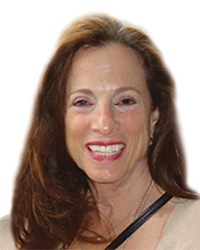Downtown Boston: A vision - by Carol Todreas

The office-centric downtown has taken a major blow. Many workers are working remotely and hoping to continue the work-at-home routine only returning to downtown offices once or twice per week. The downtown financial district looks like it was hit by a killer virus, and it was! The workers are instead enjoying no commutes, suburban yards, parks, and shopping areas. Consumer habits have changed. The pandemic is still with us but fortunately with an end in sight. Will this last? What’s next, especially for downtown Boston?
The CRE pros predict that nothing will be as before the pandemic. Many employers will downsize and some will leave downtown entirely. Conferences and conventions will be slow to return to pre-pandemic levels and business travel will never return to the expensive pre-COVID norm. All these factors affect the market for retail, restaurant and entertainment uses of downtown.
Imagine: With this new reality, even if it is temporary, many downtown retailers will be forced to close due to fewer customers. Most leases are based on pre-pandemic market conditions; most retail concepts are tailored to suit the pre-COVID office worker density. To remain in business concepts and leases have to change unless those businesses can adapt.
What if existing restaurants could pivot to serving dinner? What if, in addition, there were other reasons to come downtown? What if many more people lived downtown?
Great eating and drinking for an evening out could be the spark to change downtown. The new downtown would be a regional center for cultural, entertainment and arts venues, host to a variety of music, theatre, art, and mixed media and anchored by innovative dining concepts from around the world. The retail complementing the new uses would be stores and services for visitors and downtown workers, but with hours aligned with the evening venues.
Downtown would also be a place to live. Some office high rises would be converted to residential uses and would feature rooftop parks, urban farms, schools, performing art studios, clusters of stores and services. This would be a new generation of urban dwellers, enjoying green amenities in a historic downtown.
It Can Happen
Moving forward into a post-pandemic era is a time to take stock. There is no choice but to rethink, replan, develop and run new financial models. This is the moment. Boston has unparalleled energy and talent. It has the basics with a diverse population filled with ideas, eager to work, earn, invest, build, and spend money. We can make change. It can happen.
Carol Todreas is a principal at Todreas Hanley Associates, Cambridge, Mass.
Newmark negotiates sale of 10 Liberty Sq. and 12 Post Office Sq.


Five ways to ruin a Section 1031 Like-Kind Exchange - by Bill Lopriore

Make PR pop by highlighting unique angles - by Stanley Hurwitz

How COVID-19 has impacted office leasing - by Noble Allen and John Sokul








.png)